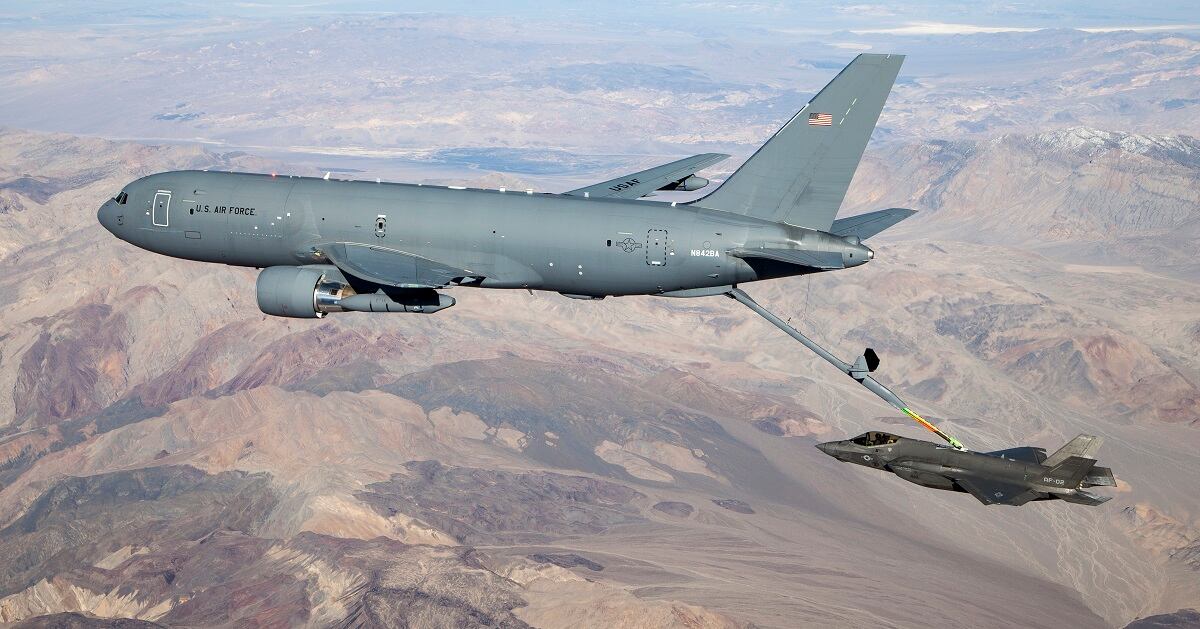WASHINGTON — The Air Force will pay up to $55.5 million for Boeing to redesign the KC-46’s boom, but it will cost more than that to field a fix to the problem.
According to a Aug. 2 contract announcement, the award will pay for a “system level hardware and software critical design review of the boom telescope actuator redesign,” and Boeing will receive $21 million of the proposed award value immediately. But because the contract has yet to be definitized, Boeing could receive up to $55.5 million once terms of the deal are cemented.
RELATED

And since initial award only covers the redesign of the boom — not the costs of testing, fabricating and retrofitting the new booms on existing aircraft — it stands to reason that the Air Force will owe additional money to Boeing to completely fix the issue.
Unlike the other remaining critical deficiencies on the KC-46 program, the Air Force has agreed to foot the cost of fixing the boom problem, as it is a change in the service’s initial requirements.
Boeing’s current boom design meets international standards for thrust resistance, and the Air Force accepted that design at Milestone C in 2016, when the KC-46 was cleared for production. But later flight tests demonstrated that the boom produces too much thrust resistance to refuel the A-10, necessitating a change in design.
In January, an Air Force official told Defense News the process of redesigning and manufacturing the new booms could take about two years.
The Air Force plans to buy 179 KC-46s over the life of the program. After years of delays due to technical issues, the service signed off to accept the first tanker in January, which was then delivered to McConnell Air Force Base, Kan., later that month.
The KC-46 made its first flight for the initial operational test and evaluation phase on June 4 at McConnell AFB.
Boeing is on the hook to pay for the other major critical deficiency: a redesign of the Remote Vision System, a collection of cameras and sensors that allow the boom operator to steer the boom into the fuel receptacle of the receiving aircraft.
The service became aware of this problem after pilots experienced difficulties directing the boom during refueling, sometimes scraping the surface of the receiver aircraft — a mistake that could compromise the low observable coating of stealth aircraft.
Despite this issue, the Air Force has decided to accept KC-46 tankers so that pilots can begin training with the new aircraft. However, the service is withholding up $28 million per plane in order to incentivize Boeing to move quickly on a redesigned RVS. About $360 million has been withheld so far, according to Defense One.
Valerie Insinna is Defense News' air warfare reporter. She previously worked the Navy/congressional beats for Defense Daily, which followed almost three years as a staff writer for National Defense Magazine. Prior to that, she worked as an editorial assistant for the Tokyo Shimbun’s Washington bureau.








